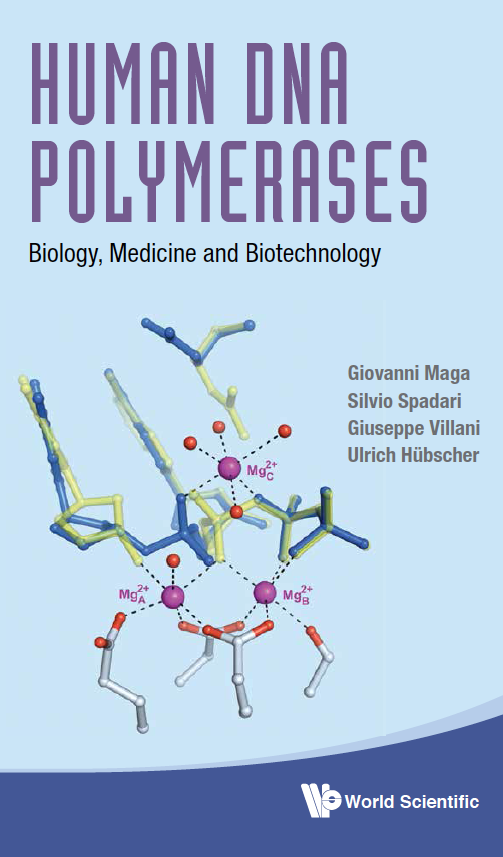Prof. Dr. Ulrich Hübscher
Research interests
8-oxo-guanine bypass by human DNA polymerases in the presence of auxiliary proteins
Recent findings and relevance
The maintenance of genetic stability is of crucial importance for any form of life. Genomic instability can lead to death, cancer and premature aging. On the other hand DNA itself is highly reactive and is constantly attacked by reactive oxygen species from in and outside the cell. 7,8-dihydro-8-oxoguanine (8-oxo-G) is recognized as one of the most important oxidative DNA lesions because of its great mutagenic potential. Specialized DNA polymerases (pols) are required for translesion synthesis. Auxiliary factors play an important, but so far poorly understood, role in this process. The effects of proliferating cell nuclear antigen (PCNA) and replication protein A (RP-A) on six different human DNA pols belonging to the B, Y and X families, were analyzed during in vitro bypass of different lesions. A major and specific effect was found for pol ⎣. PCNA and RP-A allowed the correct incorporation of dCTP by pol ⎣ opposite a template8-oxo-G 1200- fold more efficiently than the incorrect dATP. These findings suggested a novel accurate mechanism to reduce the deleterious consequences of oxidative damage and, in addition, point to an important role for PCNA and RP-A in determining a functional hierarchy among different pols in 8-oxo-G bypass. The adenine misincorporated by replicative pols opposite 8-oxo-G is removed by a specific glycosylase, leaving the lesion on the DNA. Subsequent incorporation of C opposite 8-oxo-G on the resulting one nucleotide gapped DNA is essential for the removal of the 8-oxo-G to prevent G-C to T-A transversion mutations. Such transversion mutations were identified in frequently occurring cancers such as breast, prostate and lung. We showed by immunofluorescence experiments, in cells exposed to ROS, the involvement of MutY glycosylase homologue (MUTYH) and pol ⎣ in the repair of A:8-oxo-G mispairs. We observe specific recruitment of MUTYH, pol ⎣, proliferating cell nuclear antigen, flap endonuclease 1 and DNA ligases I and III from cell extracts to A:8-oxo-G DNA, but not to undamaged DNA. By using purified proteins and a novel assay we reconstituted the full pathway for the faithful repair of A:8-oxo-G mispairs involving MUTYH, pol ⎣, FEN1 and DNA ligase I. Recently we studied the regulation of pol λ and MUTYH and found that the E3 ligases CHIP and Mule are responsible for the regulation of these enzymes under normal and genotoxic stress conditions. Our results reveal a novel response pathway to ROS, important to sustain genomic stability and to modulate carcinogenesis.
